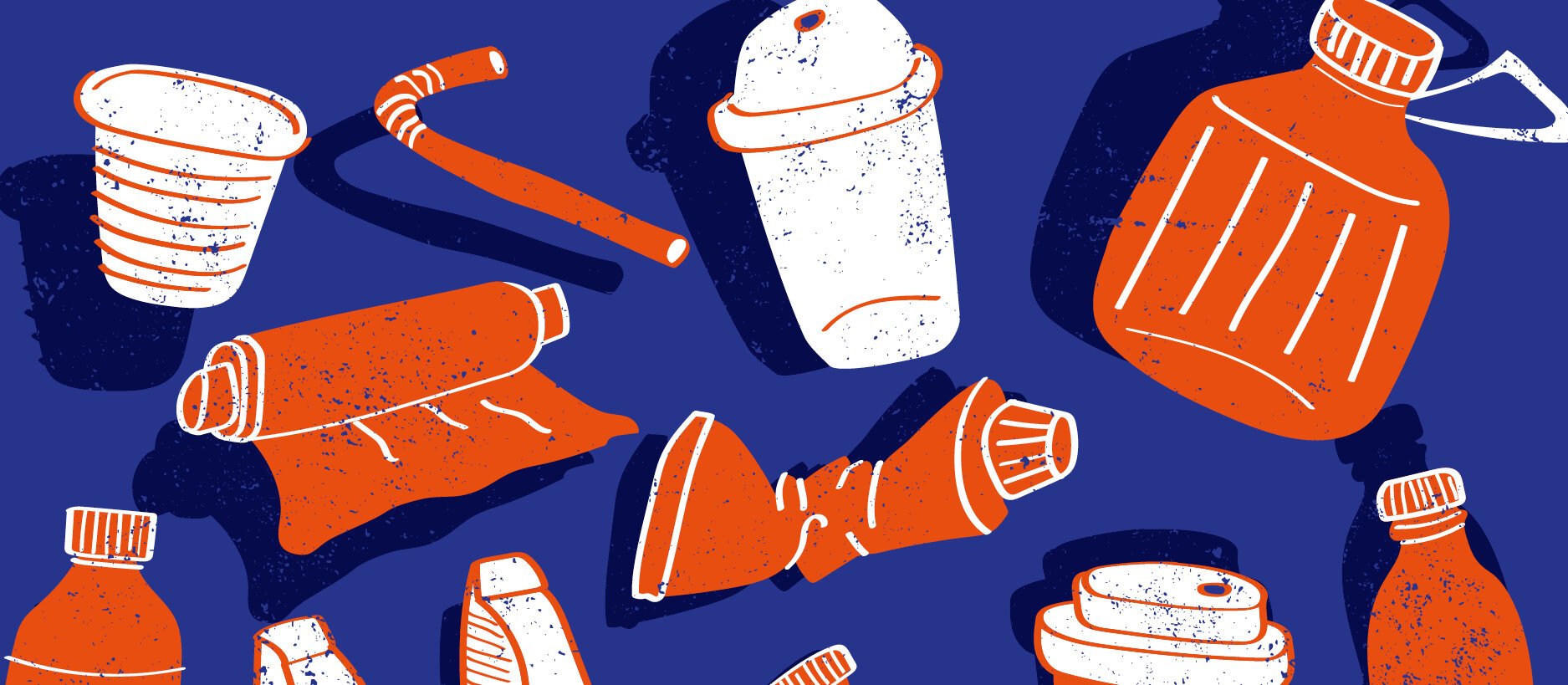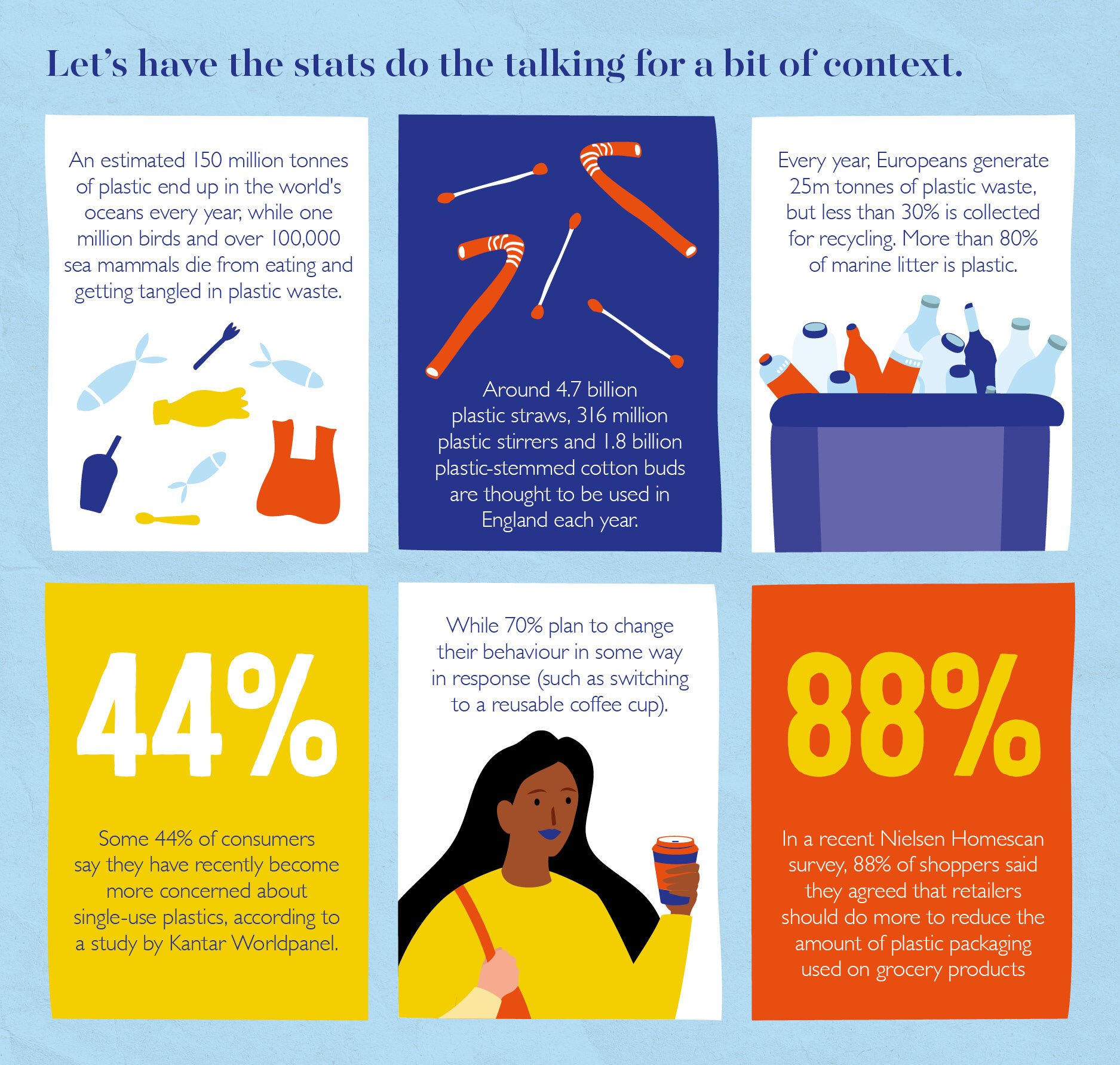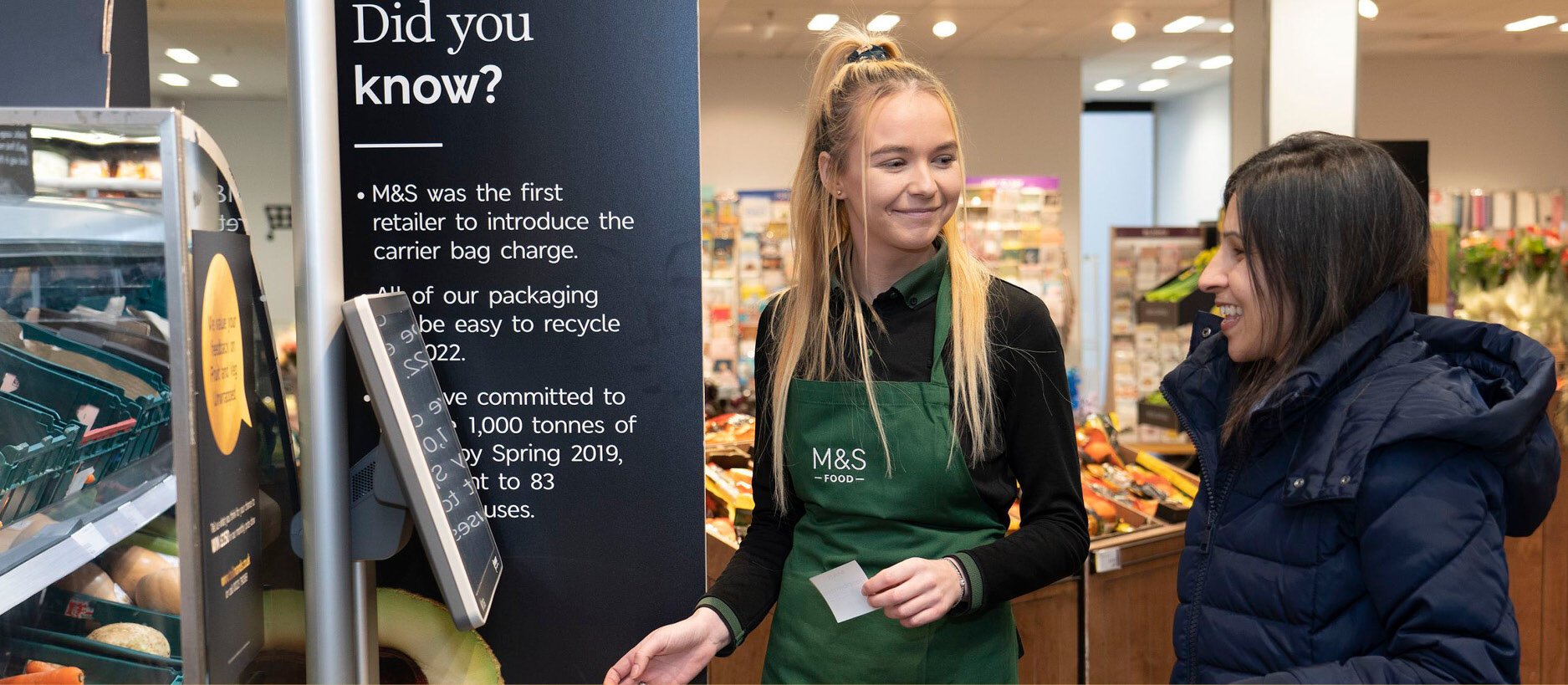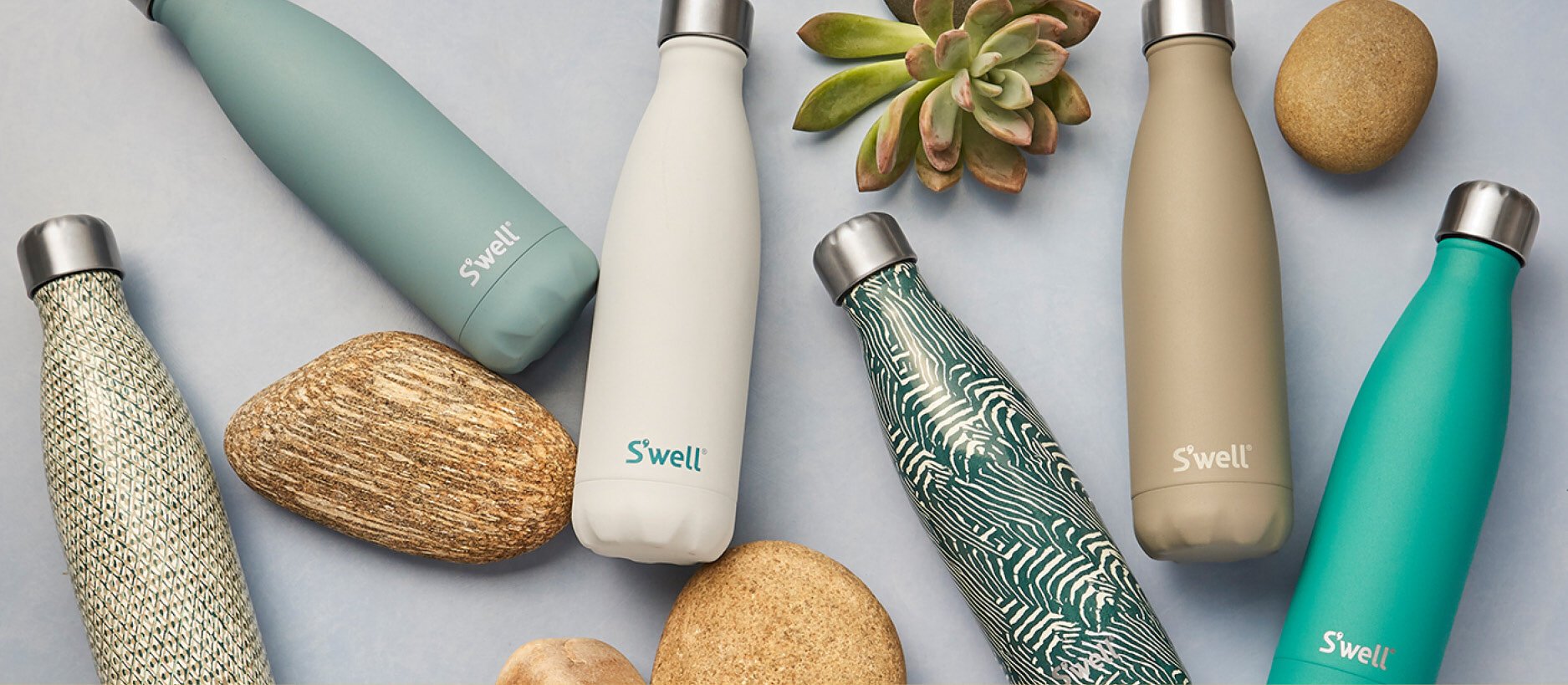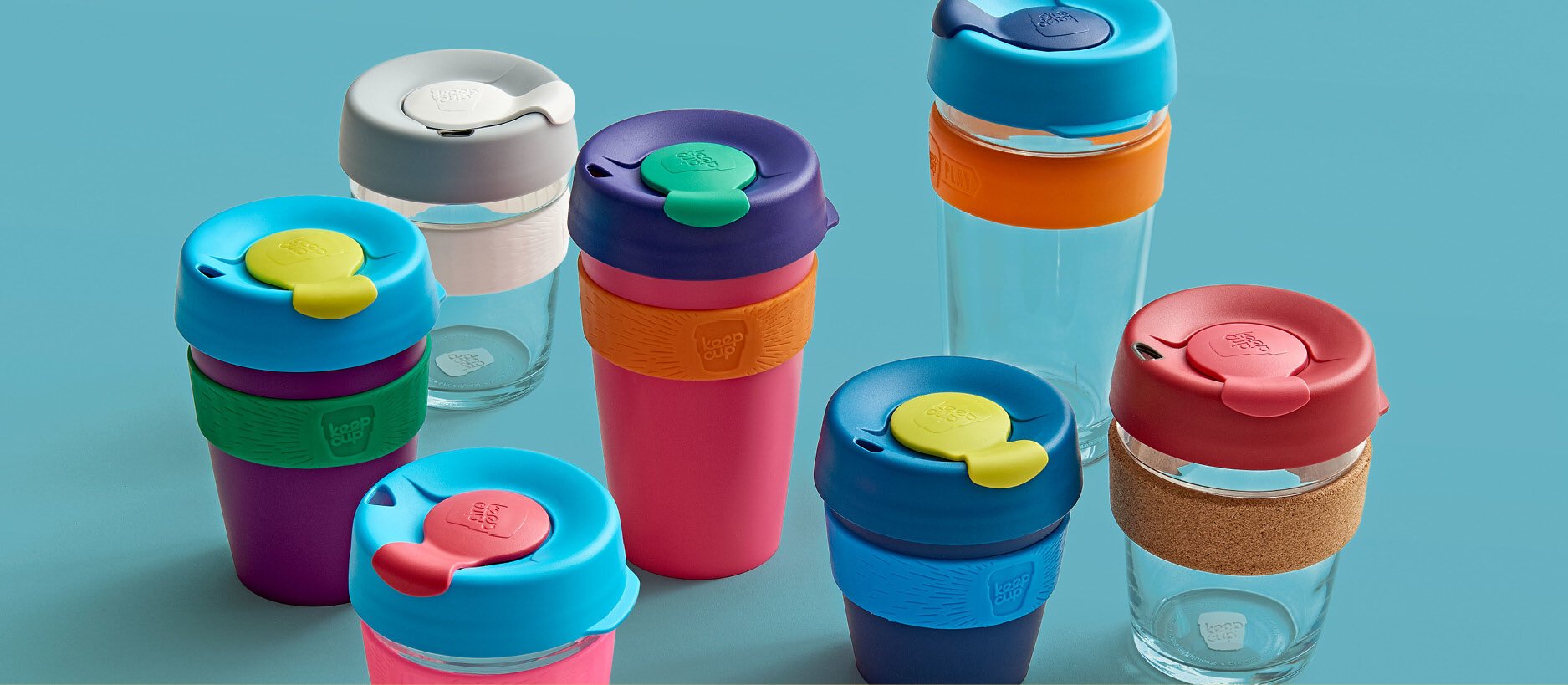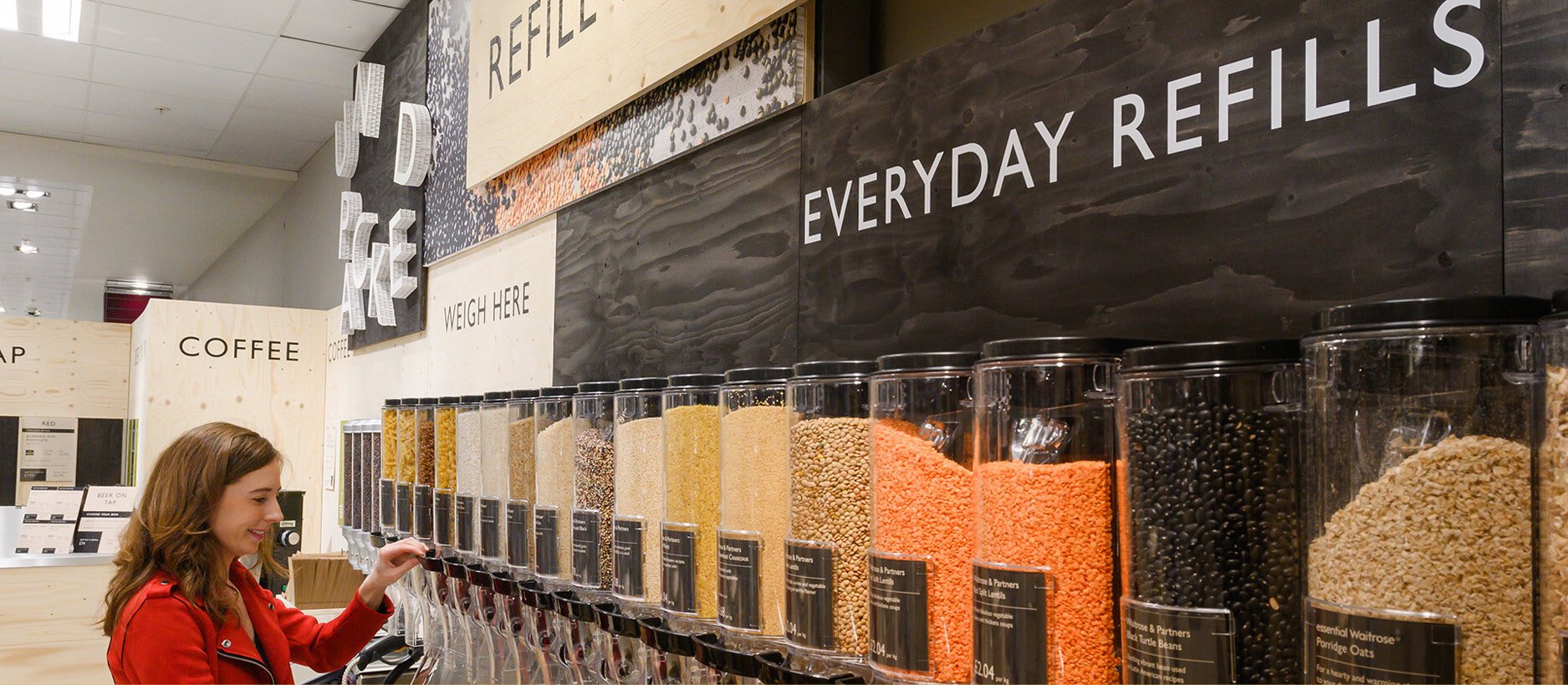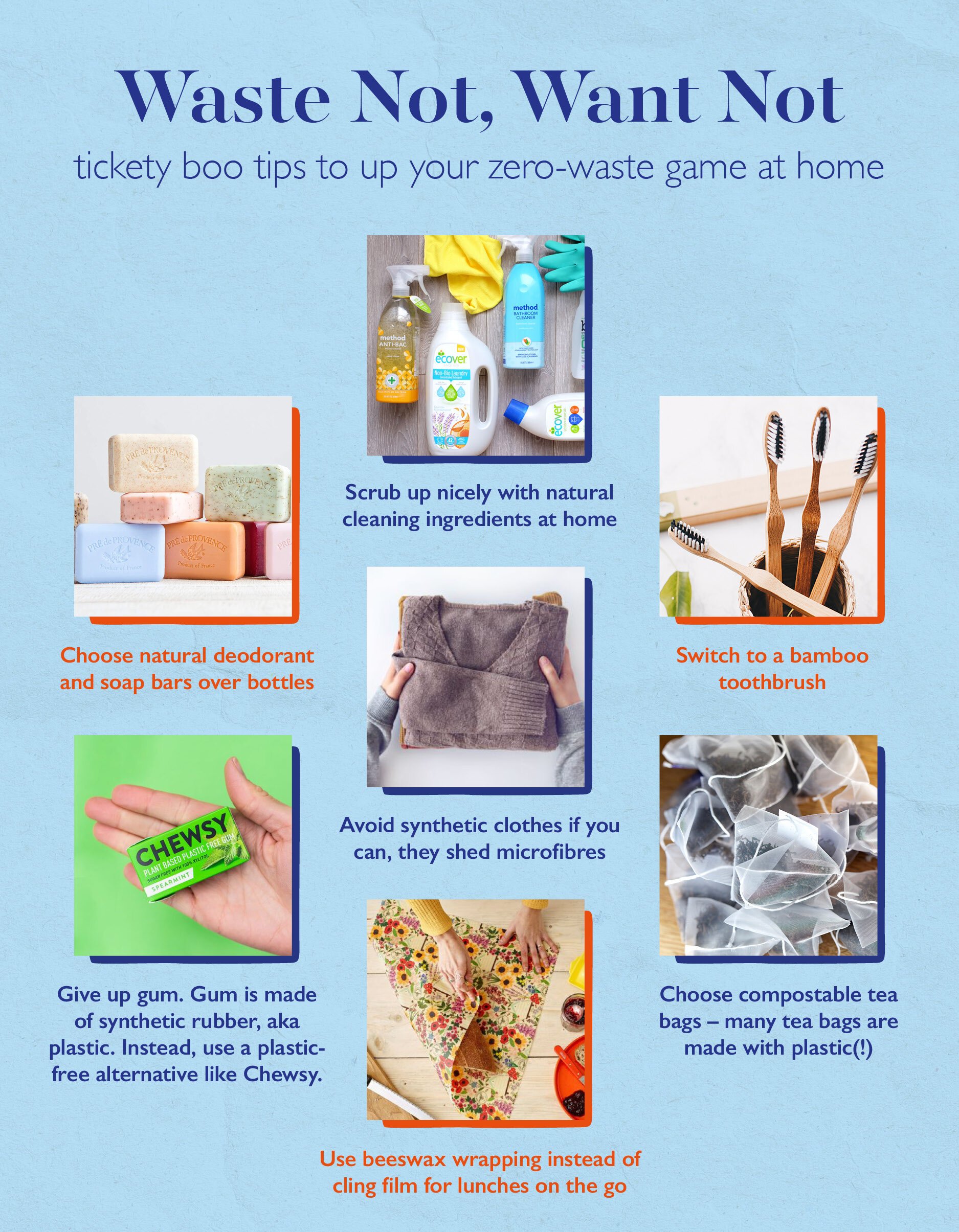The P word
How the anti-plastic movement is impacting the world of retail.
WE HAVE A SITUATION
Popular documentaries such as Blue Planet II, which hauntingly demonstrated the dangers of plastics to marine life, have had a huge impact on the way consumers and retailers think about plastic. The shift in environmental awareness has been labeled ‘The Attenborough Effect’ – and the power of it is not to be underestimated. In the midst of a pandemic, many of us are cooking and ordering food deliveries at home in greater numbers than ever, which has led us all to question the sheer volume of plastic we go through.
WHAT’S BEING DONE?
Before Covid-19 derailed efforts, progress had been made. Coffee chains including Costa, Starbucks and Pret A Manger, have all pledged to do their bit by offering discounts to customers who brought their own reusable cup – while a giant wave of bars and restaurants, such as Pizza Express, JD Wetherspoon and All Bar One have banished plastic straws and supermarkets have vowed to cut the amount of plastic waste they produce.
The government is also focusing on the issue, promising to extend its plastic bag ban to small retailers, introduce a latte levy and banning single-use plastic stirrers. Food and drink outlets will also be unable to display plastic straws. This is welcome news to consumers who are driving the change. And catching onto the public’s growing environmental awareness, UK supermarkets are taking responsibility by making steps towards going plastic-free too.
Almost all UK supermarkets signed up to the UK Plastics Pact, which launched in April 2018. The pact aims to tackle plastic waste by bringing together businesses from across the entire plastics value chain, UK governments and NGOs. Most supermarkets have adopted their own anti-plastic initiatives too. Sainsbury's became the first UK supermarket to remove plastic for its loose fruit, vegetables and bakery items earlier this year, while Waitrose has been trialing a packaging-free area in one of its Oxford stores – with prices about 15% cheaper compared to packaged items so as to encourage customers to embrace the eco-friendly initiative.
Marks & Spencer is running a trial at its large food store in Tolworth, south London, to see to what degree it can remove packaging without affecting food quality and freshness. And Tesco is also trying out plastic-free fruit and vegetable sections in a small number of stores in the UK, as is Morrison's – who say that by 2025 their its own-brand plastic packaging will be reusable, recyclable or compostable.
THE ANTI-PLASTIC RETAIL RIVALS
But are retailers going far enough, fast enough to reduce plastic waste? Maybe not, because the increased attention to the issue has created opportunities for new brands pitching themselves as an alternative to plastic, and they are booming.
US-based stainless steel bottle brand S’well, positions itself as an alternative to carrying around a plastic bottle, but also as a fashion accessory.
Since launching in the UK in 2015, they have doubled in size – and they are the first to admit that their success has a lot to do with the nation’s change of perception toward plastic. Similarly, the KeepCup, an Australian reusable coffee cup brand, has now sold more than eight million cups, while its business has doubled in size since its 2012 launch in the UK. Fact is customers are demanding eco-friendly plastic alternatives and retailers (new or established) need to pay attention and use this momentum to stay ahead of the game maybe even more so in the midst of a pandemic.
Another new area of anti-plastic business growth is Zero Waste shops, which are springing up across Britain. Like the ‘Waitrose Unpacked’ scheme, pasta, grains, seeds and dried fruit are self-served from glass hoppers into containers you bring with you, but taking it a few steps further than the supermarket’s trial, absolutely everything sold in these shops is environmentally friendly (as you would expect), even the dental floss is plastic-free. Sure, they aren’t on every high street corner (yet) and they obviously can’t offer the same discounts as the big supermarket brands, but are Zero Waste shops the shops of our future? It certainly looks that way.
A recent survey by ThoughtWorks found that for the first time, the public is putting environmental considerations around plastic waste above the price of goods when shopping – with 62% most concerned with reducing plastic packaging, while 57% said price would be a main driver for their purchases.*
WHAT MORE CAN BE DONE GOING FORWARD?
As we all begin to question our plastic footprint, customers and retailers need to work together and take responsibility and create change. As customers enjoy increasingly more choice of sustainable shops to buy from, existing retailers need to be quick and responsive to improve their own anti-plastic initiatives, else their shoppers will simply go elsewhere.
We all need to be innovative and creative in finding planet-friendly alternatives to plastic. Customers need to continue to demand change, and retailers must continue with anti-plastic trials and roll-outs. Especially now, when it comes to the future of our planet, nothing is for certain, but you can bet your bottom dollar that we’ll be seeing very different supermarkets in the next 5-10 years. We’ve already seen massive changes in the last few months!
Links:
https://www.marketingweek.com/brands-taking-advantage-war-on-plastic/
http://www.climateaction.org/news/5-companies-leading-the-movement-to-go-plastic-free
https://www.marketingweek.com/brands-taking-advantage-war-on-plastic/
* Plastic Waste, top customer concern
https://www.theguardian.com/environment/2018/sep/10/plastic-waste-set-to-beat-price-as-uk-shoppers-top-concern-study
https://www.which.co.uk/reviews/recycling/article/what-are-supermarkets-doing-about-plastic

